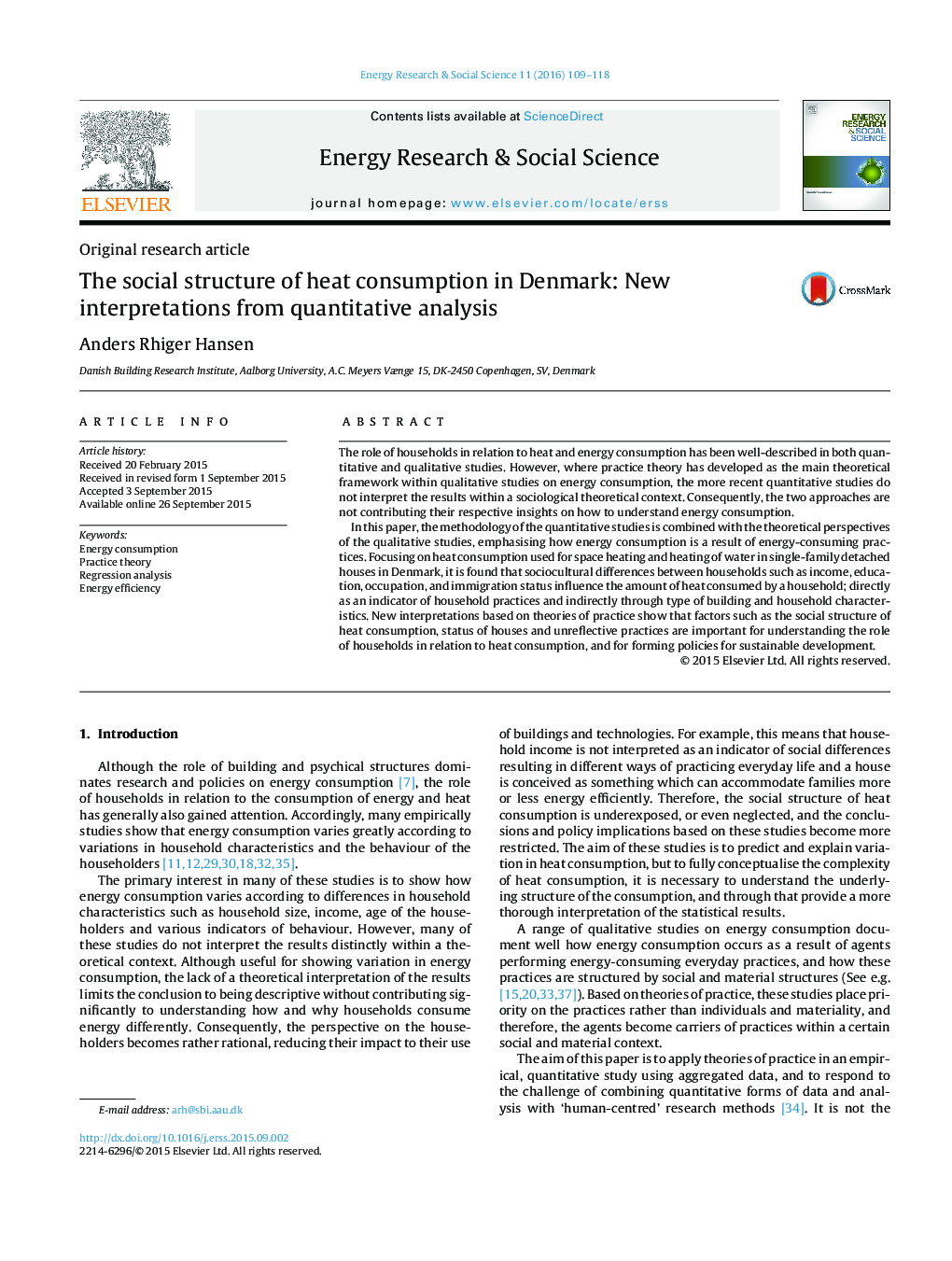| Article ID | Journal | Published Year | Pages | File Type |
|---|---|---|---|---|
| 6558382 | Energy Research & Social Science | 2016 | 10 Pages |
Abstract
In this paper, the methodology of the quantitative studies is combined with the theoretical perspectives of the qualitative studies, emphasising how energy consumption is a result of energy-consuming practices. Focusing on heat consumption used for space heating and heating of water in single-family detached houses in Denmark, it is found that sociocultural differences between households such as income, education, occupation, and immigration status influence the amount of heat consumed by a household; directly as an indicator of household practices and indirectly through type of building and household characteristics. New interpretations based on theories of practice show that factors such as the social structure of heat consumption, status of houses and unreflective practices are important for understanding the role of households in relation to heat consumption, and for forming policies for sustainable development.
Related Topics
Physical Sciences and Engineering
Energy
Energy (General)
Authors
Anders Rhiger Hansen,
